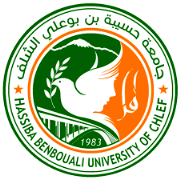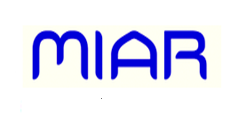Call for Papers: Special Issue on
Bridging Babel: AI Innovations in Language Pedagogy and Translation Technologies
The Journal of Languages & Translation is pleased to announce a special issue titled “Bridging Babel: AI Innovations in Language Pedagogy and Translation Technologies.”
The rapid advancement of artificial intelligence—particularly generative AI and large language models (LLMs)—is profoundly transforming traditional approaches to foreign language education and translation practice. As AI capabilities continue to evolve, the relationship between human expertise and machine assistance is being fundamentally redefined. This transformation prompts critical questions about pedagogy, professional practice, ethics, and the future directions of both disciplines.
By 2025, AI-driven translation has made remarkable strides, integrating deep learning, LLMs, and contextual AI to produce increasingly sophisticated outputs. At the same time, the widespread availability of AI-based tools is reshaping how language learning and translation are perceived and practiced by both students and educators.
This special issue aims to examine the intersection of these developments and their implications for theory, practice, and professional identity in the fields of language teaching and translation. We invite cutting-edge research that explores the role of AI in these domains, with a focus on both conceptual frameworks and real-world applications.
Focus and Scope
We seek contributions that critically scrutinize current developments, explore pedagogical innovations, unveil ethical challenges, and envision future trajectories in these interconnected fields that address, but are not limited to the following topics:
- AI Integration in Foreign Language Education
- Pedagogical frameworks for incorporating AI tools in language classrooms
- Curriculum development for the AI era
- Assessment practices in AI-enhanced language learning environments
- Developing AI literacy among language educators and students
- Personalized learning experiences through AI technologies
- AI for teaching languages with limited resources
- AI-powered language learning applications and platforms
Translation and Interpretation
- Neural machine translation in language classrooms
- AI-assisted translation pedagogy
- Post-editing machine translation as a skill in language education
- Computer-assisted translation tools in language teaching
- Ethical considerations in AI-mediated translation education
- Multimodal translation technologies
- AI for specialized translation training (legal, medical, technical)
Professional Identity and Transformation
- Changing roles and competencies of language educators and translators
- Upskilling and professional development in the AI era
- Market trends and employment implications
- New specializations emerging from AI integration
- Balancing technological efficiency with professional expertise
- Communities of practice supporting AI implementation
Important Dates
Call for Papers Opens: June 1, 2025
Paper Submission Deadline: June 5, 2025
Publication Date: December 1, 2025
Submission Guidelines
All submissions will undergo double-blind peer review. Authors should ensure that their manuscripts represent original work that has not been previously published or is not under consideration elsewhere.
Submissions should be made through the journal's online submission system, via ASJP link: https://www.asjp.cerist.dz/en/PresentationRevue/710
Manuscripts submitted to The Journal of Languages & Translation must fall under one of the above axes.
Only MS Word files can be submitted to the Journal.
Papers should be 10 - 20 pages, (size A4) including tables, figures, references and appendixes and 12 point font (Bodoni Bk BT) 1 line spacing.
The margins are 1.5 cm at the top, 3 cm at the bottom, 3 cm on the left, 3 cm on the right.
The Journal of Languages & Translation (JLT) welcomes contributions in either English, French or Spanish.
All papers should include an abstract of about 300 words in length and up to five keywords listed in an Alphabetical order. An Abstract in English is expected for all papers.
The title page should include the full title of the paper, the author’s full name(First Name, Family Name), affiliation, e-mail address and ORCID ID.
A downloadable template for authors is available on the journal’s website; you are requested to use it as a model: https://journals.univ-chlef.dz/index.php/jlt/Templates
Contact Information
For inquiries regarding this special issue, please contact: F.boukhelef@univ-chlef.dz
We look forward to your contributions to this exciting and rapidly evolving field at the intersection of artificial intelligence, language education, and translation studies.











